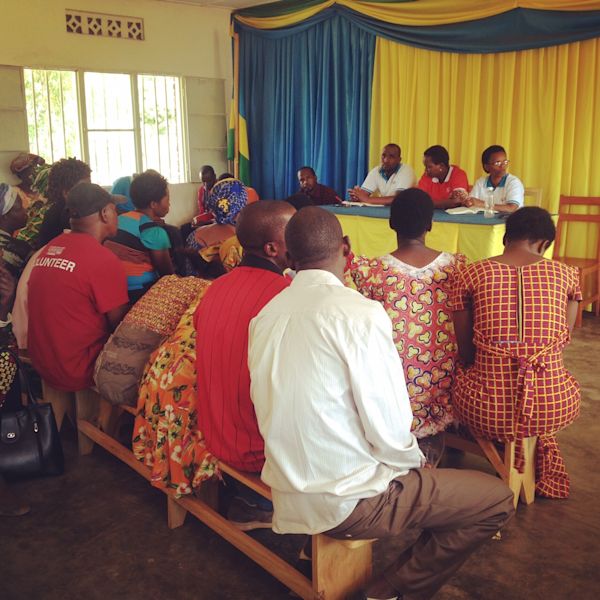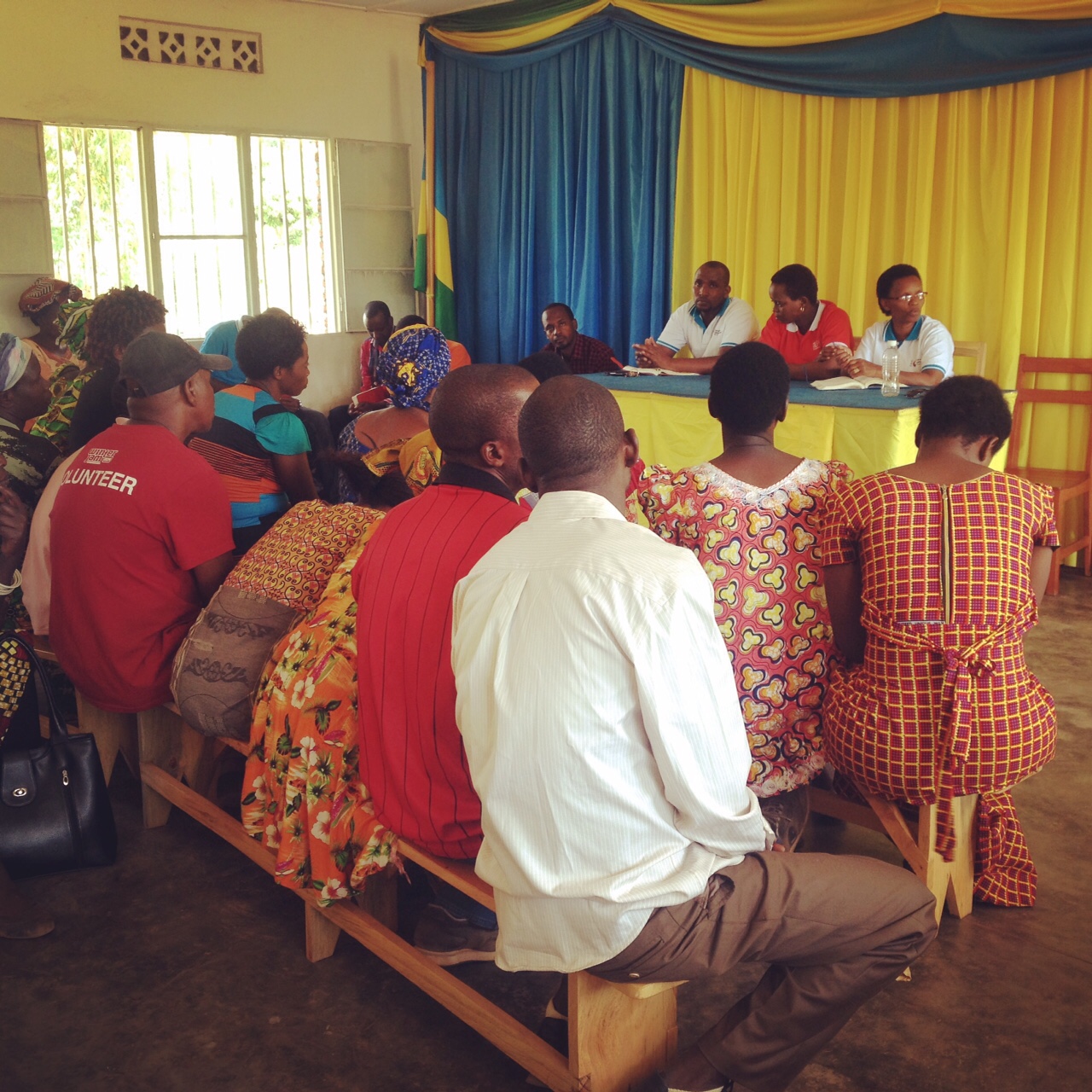
This summer, I have the privilege of working with one of Kiva's Field Partners, Urwego Opportunity Bank (UOB), in Kigali, Rwanda. As part of their semi-annual roadshow, the UOB management team traveled around Rwanda visiting each of the 13 branches and meeting borrowers. While UOB's default rate is low, 2.1%, the most recent roadshow focused on defaulted group loans (see definition below) with the desire to understand (1) why groups default and (2) how this can be prevented in the future.
Defaulted Group Loans: Loans that were not repaid 90 days past the due date.
Even though the CEO was careful to welcome borrowers in a way that made them feel comfortable to share their stories, "We want to understand the problem so we can, together, find a solution," the meeting started off rather small. Some borrowers did not join because they were afraid UOB would arrest them for defaulting on their loan. Once the borrowers in attendance understood UOB's purpose, they called their fellow borrowers to let them know it was safe to join. Throughout the morning, the audience grew until we heard from 7 different groups and over 50 borrowers.

Each of the 7 groups in attendance provided an introduction that included a history of the group and the reasons behind the defaulted group loan. For these borrowers in the Eastern Province of Rwanda, the reasons behind the defaulted loans fell into two main categories, including:
1. One (de)Faulty Borrower
2. Climate Changes
One (de)Faulty Borrower: Multiple groups had to default on their group loan because one borrower could not or would not repay their portion. Borrowers who could not repay their loan typically did not use the loan for its intended purpose. Instead, the borrower used the money to cover an emergency cost, such as: illness, school fees, house repairs, etc. Borrowers who would not repay their loan typically believed there would not be substantial consequences for their actions. In reality, UOB leverages social collateral (see definition below) to ensure borrowers repay.
Social Collateral: When a borrower wants to join a UOB Loan Group, the group leader conducts the necessary due diligence to make sure (1) the borrower can be trusted and (2) the borrower has collateral (e.g., land). If the borrower defaults, it is up to the group to collect and sell the borrower's collateral to cover their portion of the group loan. Borrowers are then pressured to repay their portion of the group loan to uphold their reputation in the community.
Climate Changes: Multiple groups had to default on their group loan because climate changes (e.g., drought) significantly impacted their crop yield. Group leaders detailed the struggles of meeting agriculture output demands and repaying their loan, when they experienced prolonged periods of limited rainfall. Considering agriculture accounts for one third of Rwanda's GDP, this sector's dependence on climate changes is a reality for most borrowers at UOB.
The defaulted borrowers who attended the roadshow and explained their stories were all sincerely interested in redeeming their reputation and applying for another loan with UOB. With this in mind, the UOB management team listened and provided next steps for each group to rectify their defaulted loan and apply for a new group loan. For one group who experienced crop reductions during the drought, they received the good news that they could stop accumulating penalties by rolling their remaining repayments into a new group loan. The Loan Officer proceeded to escort the group outside to create an agreement for the new group loan.
In the end, the roadshow provided UOB with a deeper understanding of their clients and how to provide products that truly suit their needs. As a result of talking to defaulted borrowers, UOB is currently adjusting loan products to support their borrowers and reduce future defaults. Without the support of Kiva lenders, MFIs like UOB would accept all of the risk and be forced to allocate more funds toward covering defaulted loans rather than advancing their mission to serve the low-income, financially deprived populations.
Click here to support UOB borrowers and help UOB advance their mission!














